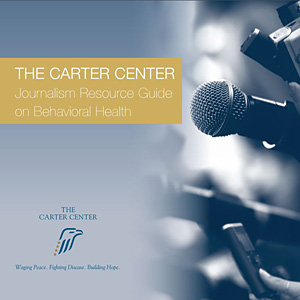Coaching for Journalists Reporting on Mental Health
The Carter Center’s Mental Health Journalism fellows and journalists trained by our experts in effective mental health reporting are offering free one-on-one assistance to reporters covering related topics.
Whether you’re digging deep into addiction, navigating getting info for your mental health stories or checking on the best language to use that doesn’t inadvertently promote stigma or stereotypes, this resource is for you.
Language Guide for Reporting on Mental Health
If you’re a journalist on deadline, we recommend you check out our free guide.
Our Mentors
Volunteer mentors are alumni of The Rosalynn Carter Fellowships for Mental Health Journalism. They’re journalists who have been trained in mental health reporting and who have deep experience in mental health reporting, too. Our mentors provide guidance on reporting accurately and effectively on mental health and their areas of expertise.
What should you talk about during your mentorship session?
Some tips to make the most of it:
- Plan ahead what you’d like to address. What topic are you interested in? What are your challenges? What do you need to know to report on it?
- Be respectful of your mentor’s time. Mentorship is voluntary and the people participating are busy journalists! If you need to reschedule or cancel, give them a heads-up well in advance.
- End your session with a game plan. Identify next steps, set a deadline for execution or follow-up.
I am not a journalist. Can I sign up to be mentored?
Can I sign up for multiple sessions with different coaches?
What if I can't make a mentorship session?
How are the coaches selected?
Language guide for reporting on mental health
The Carter Center Journalism Resource Guide on Behavioral Health (pdf) supports journalists’ efforts to report accurately and effectively behavioral health issues, including addiction and substance use, in ways that do not reinforce stereotypes and stigma.
-
Search Rosalynn Carter Fellows past and present and browse their fellowship projects.
-
Find training opportunities, key mental health organizations & centers, governmental resources, important publications, and more.
-
From the National Child Traumatic Stress Network




